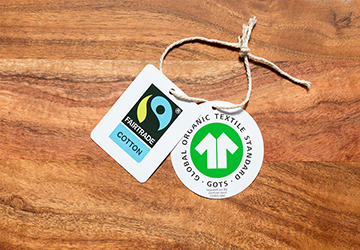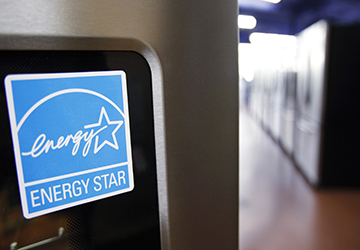Top Considerations for Environmental Protection
The world is rapidly shifting towards sustainable living, and every day brings a bold new challenge to us in this regard. The environmental protection policy has taken over, so we all choose eco-friendly products, which are the foremost steps towards a better environment. Additionally, our conscious purchasing decisions can immensely contribute to preserving natural resources, leading to less carbon footprint.
This article will discuss selecting eco-friendly products that will empower you to make responsible choices.
Remember, the market and shelves are flooded with variations of everything, so read and then decide what to buy.

Look for certifications
Certifications are the most effective ways to identify eco-friendly products. Many organizations guarantee a product's authenticity, and they can vouch that the products are made according to environmental standards.
You can check for labels such as FSC(Forest Stewardship Council), USDA Organic, Energy Star, and GOTS( Global Organic Textile Standard and Fair Trade Certified) for this. These certifications promise that the product has undergone vigorous testing and is approved for sale.
Seek the packaging
The second notable item to look for is the packaging of the product. Ensure you opt for environmentally friendly packaging, meaning it must be made from recycled material. Or, it must be biodegradable at a particular time when you dispose of it. This step will minimize wastage and contribute to a circular economy.
Remember to avoid products with excessive packaging or plastic packaging. They are not recyclable and harm the environment a lot.
The bigger picture
Generally, when we shop, we look at the packaging and check the ingredients, and our curiosity ends there. Then either we buy the product or we don't. Rarely do we tend to make a move to look at the bigger picture.
An eco-friendly product must pass sustainable standards through the entire cycle, from production to packaging and finally selling. But have you considered what is happening behind the scenes of that company?
No, right?
Now take a company that manufactures recycled floor mats and shouts ' true environmentalists' and may create floor mats from recycled material, which is the best step. But what if purchasing from this company means that you are supporting a company that makes other products that are not eco-friendly, which you might unknowingly purchase as well?
So dig into the company profile to get the bigger picture. Do this mainly for the products that fall under general daily consuming criteria, as the company sells them daily, not randomly. It will help you make unified and informed decisions in the future too.
Energy-efficient products
It is wise to look for energy-efficient products. The production of these products means the company follows the protocol to conserve energy resources and emit less or no greenhouse gasses.
Here you can look for appliances, electronics, and vehicles as costly companies with high energy efficiency ratings, such as the Energy Star label. Buying from these companies will not only save you money on utility bills, but you will be contributing to a greener future for all.

Ingredients and materials
The choice of ingredients and materials plays a huge role in sustainability and its environmental impact. Once you are familiar with the materials that are eco-friendly or not, you can make easy decisions while shopping. Moreover, you won't have to rely on certifications only, as self-awareness is better in all aspects.
Look for products on shelves that are biodegradable and made from recycled materials. For example, you may purchase cotton, which is purely organic cotton, hemp, or bamboo, as they require less pesticides and water to grow as compared to conventional cotton. Similarly, you can choose furniture made from bamboo or other forage items.
Avoid chemicals
Many products contain harmful chemicals and produce toxic fumes upon opening the package, and they not only harm the environment but directly impact human health. This approach is necessary when buying personal care items, cleaning products, or household goods that are specially labeled as non-toxic. Look for the other ingredients to see if the product stands for its name.
Choose products free from harmful chemicals such as parabens, formaldehyde, and phthalates. Consider plant-based alternatives that are good for the environment and humans.
Durability and longevity
Durable and long-lasting products contribute less waste and need little replacement. Buy well-constructed items made from durable materials that withstand everyday wear and tear. Additionally, look for companies that offer a more extended warranty as the product will last long too.
Buy in season
Buying in season means purchasing seasonal fruits and vegetables from the local market. Among other benefits, you can save the environment as growing out-of-season products means the farmers need to use harmful chemicals for the soil and water.
Check water consumption
All types of industries need water to manufacture or grow products. It is why freshwater resources are depleting at an alarming rate, and what is left is getting polluted. When shopping for eco-friendly products, consider their impact on water resources.
For example, you can buy water-saving plumbing fixtures and low-flow shower heads. There are many other similar types once you look for them.
Concept of eco-friendly products
You must understand what eco-friendly means before you embark on the shopping spree. Many goods leave a minimal environmental impact during their manufacturing or growing process, and they are the products you must look for. Eco-friendly products mean sustainability, reduced waste, and a better environment for future use.
To sum up
Choosing eco-friendly products is one of the ways to contribute to a better environment. Considering these essential factors, you can make informed decisions and buy better products. It will save your finances and give you good health, and everything is earth related and hence brings no harm to anyone.
Next time you shop, go local and choose better products instead of fancy ones. It will save cost, and the product will run long.
Remember, a good and wise choice is what this planet is asking from us. So let's set towards a greener tomorrow.










